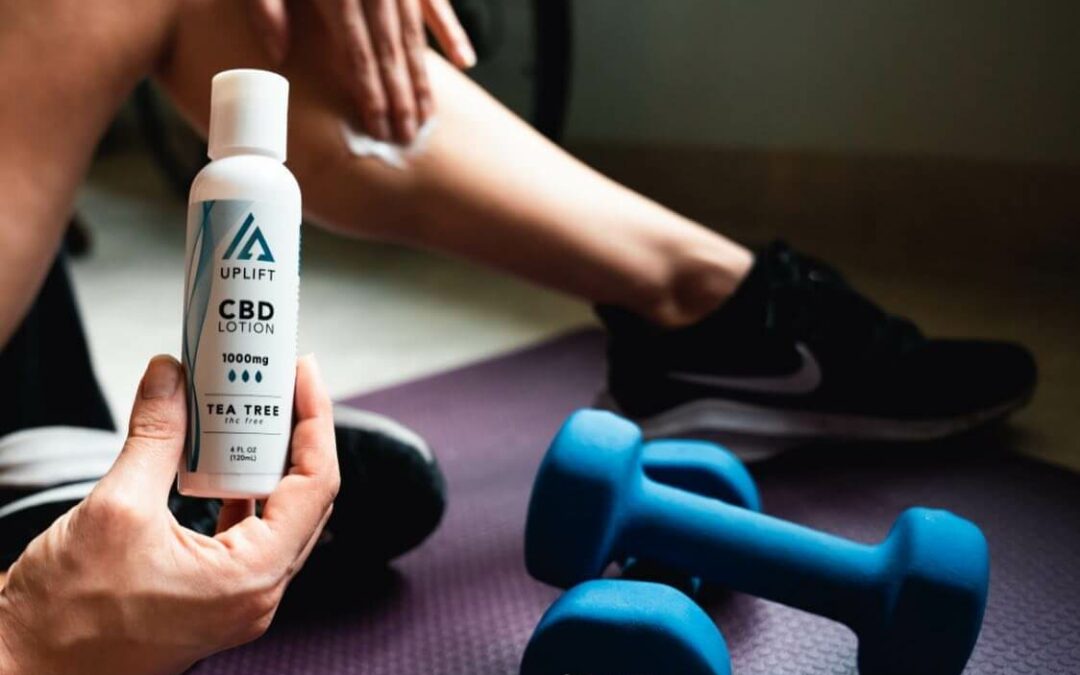Hey there! Are you curious about the differences between CBD vs THC? You’re not alone! These two compounds are often mentioned in the same breath, but they have some significant differences that are worth exploring. But, which one is better? That depends on what you’re looking for. If you’re looking for therapeutic benefits without the high, CBD might be the way to go. If you’re looking for a recreational experience, THC might be more your speed.
In this blog, we’ll dive deeper into the differences between CBD and THC, their potential benefits and risks, and how to choose the right one for you. So, stay tuned for more!
What Is CBD?
CBD can be obtained from either the hemp or cannabis plant. These plants are both part of the Cannabis Sativa species. Legal hemp must contain less than 0.3% THC, which is the psychoactive compound found in cannabis that produces the “high” sensation. CBD is available in various forms, including gummies and oils, and does not produce the psychoactive effects associated with cannabis.
What Is THC?
The primary psychoactive ingredient in cannabis that causes the “high” sensation is THC. This compound can be consumed through smoking cannabis or by ingesting it in various forms such as edibles, tinctures, capsules, and more.
CBD vs. THC: Chemical structure
THC and CBD have the same molecular structure, consisting of 21 carbon atoms, 30 hydrogen atoms, and 2 oxygen atoms. However, the differences in the arrangement of these atoms can lead to different effects. Both THC and CBD can interact with your body’s endocannabinoid system, which includes cannabinoid receptors.
These interactions can affect the release of neurotransmitters in the brain. Neurotransmitters are chemicals that help relay messages between cells and play a role in various bodily functions such as sleep, pain, immune function, and stress. Because THC and CBD are chemically similar to your body’s own endocannabinoids, they can influence these functions by interacting with the cannabinoid receptors.
CBD vs. THC: The Psychoactive Components
CBD and THC have similar chemical structures, but they are not the same. While CBD is psychoactive, it does not produce the same type of high as THC. THC can bind to CB1 receptors in the brain and produce euphoria or a feeling of being high. Studies suggest that the high from THC may be more intense when inhaled compared to when ingested.
On the other hand, CBD has a weak binding affinity for CB1 receptors, if any at all. CBD needs to bind to CB1 receptors to be effective, but it can also reduce unwanted psychoactive effects such as euphoria and sedation. This is because CBD can interfere with the binding of THC to CB1 receptors, potentially reducing the intensity of its psychoactive effects.
CBD vs. THC: Legality
The laws surrounding cannabis in the United States are constantly evolving, and it’s crucial to stay informed. While hemp has been removed from the Controlled Substances Act (CSA), CBD is still classified as a Schedule I drug under federal law. The Drug Enforcement Administration (DEA) and the Food and Drug Administration (FDA) also still classify CBD as a Schedule I drug.
However, 37 states and Washington, D.C. have passed cannabis laws allowing medical marijuana with high levels of THC to be legally available. A licensed physician can prescribe cannabis in these states. In addition, 19 states, two territories, and Washington, D.C. have legalized recreational cannabis use.
If you live in a state where medical or recreational cannabis is legal, you should be able to purchase CBD products. However, it’s important to understand the laws in your state before buying any cannabis-related items. Possessing cannabis products in a state where they are illegal or possessing a cannabis prescription in a state that doesn’t allow it can result in legal consequences. Therefore, it’s crucial to stay informed and abide by the laws in your state.
CBD vs. THC: Medical Benefits
CBD and THC have similar therapeutic benefits and can be effective in treating many of the same conditions. However, unlike THC, CBD does not produce the characteristic euphoric effects, which makes it a more preferable option for some individuals.
CBD
In June 2018, the FDA approved Epidiolex as the first prescription medication containing CBD. Epidiolex is specifically designed to treat rare and challenging forms of epilepsy. It’s important to note that Epidiolex has not been approved for any other medical conditions at this time.
CBD can be used to treat other conditions such as:
- Seizures
- Inflammation
- Pain
- Psychosis and other mental disorders
- Inflammatory bowel disease
- Nausea
- Migraine
- Depression
- Anxiety
According to a 2020 research, CBD could help with:
- Social anxiety
- Schizophrenia
- Sleep disorders
- PTSD
While CBD shows promise as a potential treatment for various medical conditions, it has not yet been approved by the FDA for these purposes. Further research is needed to confirm the effectiveness of CBD in treating these conditions. CBD is being investigated in clinical trials as a potential treatment for:
- Mood disorders
- Chronic pain
- Inflammatory diseases
- Neurodegenerative diseases such as Parkinson’s and Alzheimer’s
- Tumors
THC
The Food and Drug Administration (FDA) has granted approval for two synthetic THC formulations for targeted medical purposes. One of them is called Nabilone (Cesamet), which can be used to alleviate chemotherapy-induced nausea and vomiting. The other is Dronabinol, which is approved for treating nausea and vomiting due to chemotherapy drugs as well as for increasing appetite in patients with AIDS and anorexia.
THC is commonly used to assist with the following:
- pain
- muscle spasticity
- glaucoma
- insomnia
- Low appetite
- nausea
- Anxiety
Recent studies are studying the potential for THC to potentially treat the following:
- Obstructive sleep apnea
- Fibromyalgia
- Chronic neuropathic pain
CBD vs. THC: Side Effects
Studies have shown that even at high doses, CBD is generally well-tolerated by the human body. However, research suggests that any potential side effects from CBD use may arise due to interactions with other medications, which could potentially result in liver damage.
CBD may have side effects such as:
- Changes in appetite
- Fatigue
- Weight loss
- Dizziness
- Diarrhea
- Sleepiness and drowsiness
- Suicidal thoughts
Temporary side effects of THC include:
- Increased heart rate
- Problems with coordination
- Dry mouth
- Red eyes
- Slower reaction times
- Memory loss
- Anxiety
- Tiredness
- Confusion
- Distress
- Low blood pressure
- Seizures and seizure-like activity
CBD vs. THC – Drug Testing
The human body has the ability to store cannabinoids such as CBD and THC in its fat cells, which means that these substances can remain detectable in drug tests for several days or even weeks after use.
While some drug tests may not be able to detect CBD, it’s important to note that there are CBD-sensitive tests available. Standard drug tests are typically designed to detect chemicals that are related to THC, which means that THC and cannabis use can be identified through screening.
It’s worth noting that hemp, which is also used to produce CBD, can contain THC as well. This means that even if you haven’t used THC directly, you could still test positive for it if you’ve used hemp products.
If you are concerned about drug testing, it’s crucial to remember that THC-free products may still contain trace amounts of THC. To avoid any potential issues, it’s best to steer clear of all CBD and THC products if you’re expecting to undergo a drug test.
Key Takeaways
Both CBD and THC are known to offer a range of medical benefits, and both are generally considered safe for consumption. However, it’s important to be aware of potential side effects and interactions with other medications before using either substance.
Before using cannabis or CBD products, it’s always best to consult with your doctor to ensure that they are safe for you to use and to discuss any potential risks or side effects. Your doctor can also help you determine the appropriate dosage and method of use for your individual needs.
Tried Our THC and CBD Products Yet?
Hey there! Have you tried our THC and CBD products yet? If not, you’re missing out on an amazing experience. Our products are carefully crafted to deliver the highest quality THC and CBD that you can find on the market today.
At Uplift CBD, we’re committed to delivering the best possible products to our customers. We use only the finest quality ingredients, and our products are carefully tested to ensure purity, potency, and effectiveness. Plus, our team is always on hand to answer any questions you may have and to help you find the perfect products for your needs.
What are you waiting for? Order your Uplift CBD products today and experience the benefits of CBD and THC for yourself!
DELTA 8 THC PRODUCTS WE OFFER
CBD Products We Offer:


